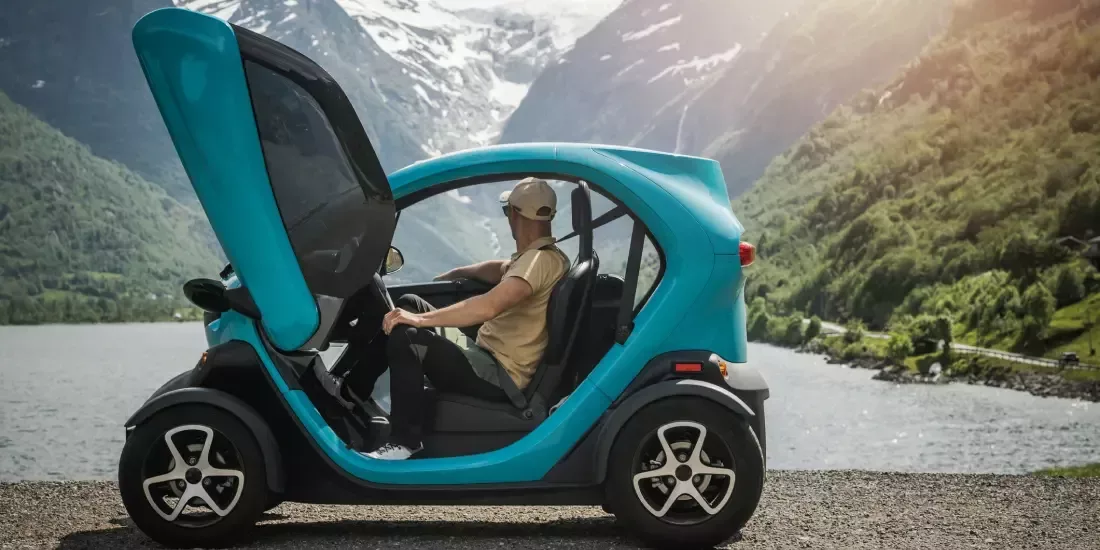Norway’s EV Market Ahead of the Curve

January marked the first time in Norway’s history that most new cars sold were pure electric vehicles. This marks a dramatic shift that could pave the country’s future to being the first with more EVs than petrol cars. Judging by statistics, EVs will overtake petrol cars by late 2024 or early 2025.
Why Norway Is Ahead
A huge amount of incentives have been on offer in Norway, thanks, in part, to surplus funds from the oil and gas industries. Pure electric vehicles have been exempt from taxes that have been imposed on internal combustion engine (ICE) vehicles. Not only this, but heavy investment has gone into public infrastructure.
In 2023, the government removed the VAT exemption for luxury EVs that cost more than 500,000 crowns (around $46,700), such as Tesla and Audi models. The remaining tax exemptions cost the state 43 billion crowns, up from 39.4 billion in 2022. Now, battery electric vehicles (BEVs) account for 24.3% of all cars, compared to 26.9% of all petrol cars, according to the Norwegian Public Roads Administration.
As such, in January, 9/10 new car sales were attributed to EVs. With trends like these, Norway intends to become the first nation to end the sale of new petrol and diesel cars by 2025. The more countries that follow in Norway’s footsteps, the sooner peak demand for oil on a global scale will be hit, ensuring a gradual decline in future years.
The Popularity of EVs
Thanks to the green transition, EVs have become way more popular in recent years. With all the talk of net zero and reducing emissions, more and more people are looking at ways they can do their part. With the surge in popularity for EVs, there’s been a gradual decline in the demand for petrol and diesel.
Even though there’s been a dip in sales in recent years, the data couldn’t be more promising. Ingvild Kilen Roerholt, Head of Transport Research at the Zero think-tank, still believes the sale of BEVs in Norway could easily reach 76,000 this year. Based on these trends, BEVs could exceed petrol and diesel models by 2029.
However, in order for this green transition to happen before 2030, 100% of new cars must have zero emissions by 2025. The main dip in fossil fuels hasn’t been seen just yet because there’s still a huge market for them, but it’s on the horizon.
What About Britain?
Recent data from Geotab has discovered that Britain is actually much better suited to switch to EVs than any other European country. The report looked at the ease with which different countries could switch based on current driving patterns, and the results were overwhelmingly in favour of EVs.
Despite the total lack of incentives compared to Norway and other European countries, ⅔ of UK cars and vans used by private owners and the public sector could easily be replaced with electric models. 66% of UK vehicles currently on the road are EV suitable, based on average daily distance and money savings throughout ownership.
Companies with fleets could save around £13,279 per vehicle over the course of seven years, working out at almost £900,000 for a large fleet of 100 vehicles. If the replacement cycle was extended to 10 years, the 66% figure would rise to 73%, Geotab noted.
Other countries analysed had lower percentages:
Canada – 50%
Spain – 43%
US – 38%
Germany – 35%
Italy – 28%
France – 20%
Public EVs
Despite the good news recorded for businesses, private ownership of EVs aren’t flying. Fewer than 1 in 5 new EVs in 2024 are registered under private ownership. This could be due to a whole host of reasons, not limited to misinformation about EVs.
It was only recently revealed that the Daily Mail had to rectify an incorrect article about EVs being attributed to the rise of potholes. While the vehicles are heavier, there was no mention of electric vehicles in the Asphalt Industry Alliance (AIA) report. Such bad press is damaging to the image of EVs, and will only hinder wider adoption of the technology.
When it’s been extensively reported that EVs save you money compared to a petrol powered vehicle, there’s obviously more at work preventing people from making the switch. Charging at home is the cheapest way to charge your car, and overnight rates means you can charge for a fraction of the cost of petrol.
If you’re in the market for an EV, make sure you get a home charger to go with it. Find out how much you’d pay for one by clicking on the button below.
